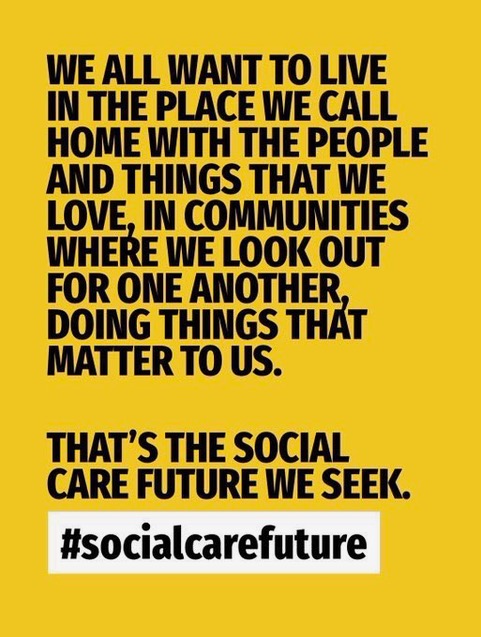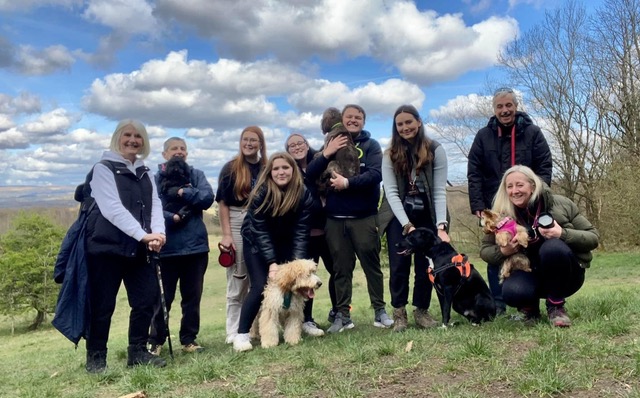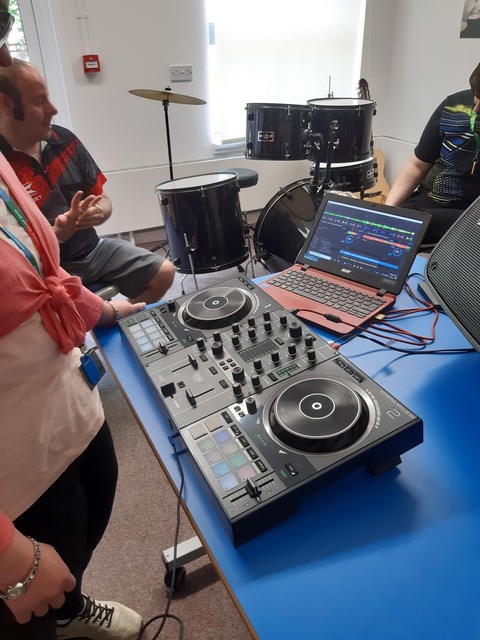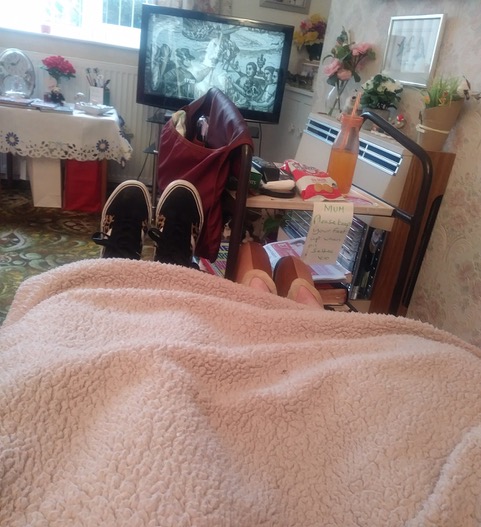Marge lives at Bruce Lodge which is a residential care home for people who live with dementia. People who know her well describe her as a popular lady who always looks glamorous and has a constant, cheery smile. After attending a presentation about Community Circles with her daughter Pauline, Marge decided that it might be a good idea to have a circle for herself. At the first meeting, I was introduced to Marge and Pauline by Helen, the community circles connector, as her circle facilitator. We spent a very pleasant hour getting to know each other, talking about how circles work and exploring what the circle might do for Marge. Marge is very much a people person and loves having company, especially if that involves being involved in group activities. So we quickly established that the purpose of the circle would be to ‘Find ways for Marge to do the things she enjoys while being part of a group and to stay active’.
At the next meeting Marge had a person-centred review which explored what mattered to Marge and what was working and not working from different perspectives. It was apparent that both Marge and Pauline were really happy with the care that is provided at the home, neither could think of much that wasn’t working apart from that Pauline had noticed that some of the staff had started to call her Mum ‘Maggie’. Marge said that she’d never been known as Maggie and had always been either Marge or Margaret. Neither Pauline or Marge had raised this with the staff, but it was apparent to me that it did bother them. Lisa, the home manager, was also present at the meeting and said that she hadn’t realized that Marge didn’t like to be called Maggie. She said that this would be added to the “important to” section of Marge’s one-page profile and that staff would be reminded about Marge’s preferred name.
The person-centred review went on to create other outcomes and actions (which I’ll share with you in future blogs), but it struck me that even if we had done nothing other than learn about Marge being called by the wrong name, the meeting would have been hugely worthwhile.
“Our sense of who we are is closely connected to the names we call ourselves. It’s important that people address the person with dementia in a way that the person recognises and prefers.” Alzheimer’s society
Michelle Livesley






